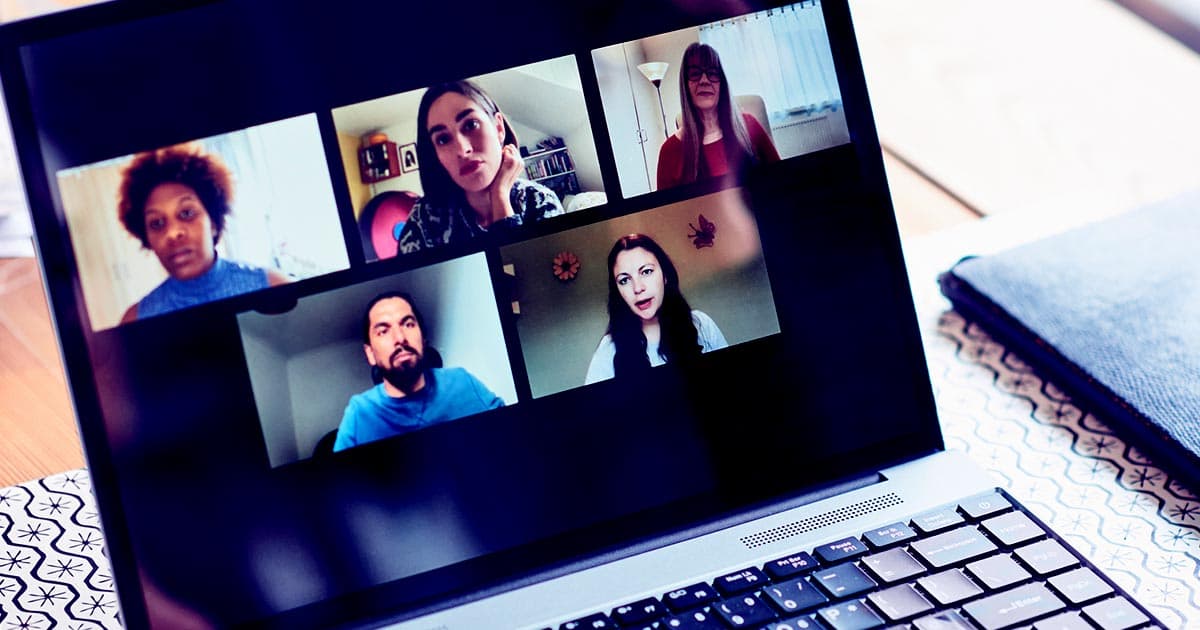Smile! Your job might just depend on it.
According to the Thomson Reuters Foundation, human rights experts are worried about Zoom's plans to develop emotion-detecting software for its products. In an April blog post, the company announced plans for the tech, arguing that emotion and sentiment surveillance could drives sales and productivity. Therefore, it should be measured on a scale.
"Sentiment provides sales reps and managers a way of assessing the emotional affect of a customer," reads the post. "The sentiment and engagement scores range between 0-100, with higher scores indicating a higher engagement or sentiment. Zoom recommends: A sentiment score greater than 61 and an engagement score greater than 50."
Great.
It seems Zoom wants to report back to customers how people on the other side of the screen are feeling, and then encourage specific scores, kinda like that one scene in "A Clockwork Orange."
Needless to say, experts aren't pleased. Thomson Reuters reported that more than 25 rights groups including Access Now, the American Civil Liberties Union (ACLU) and the Muslim Justice League signed an open letter declaring the software a potential violation of human rights.
"If Zoom advances with these plans, this feature will discriminate against people of certain ethnicities and people with disabilities, hardcoding stereotypes into millions of devices," Caitlin Seeley George, director of campaigns at Fight for the Future, said in the letter.
Esha Bhandari, deputy director of the ACLU Speech, Privacy, and Technology Project, called the AI behind the tech junk science, according to the news outlet.
"There is no good reason for Zoom to mine its users' facial expressions, vocal tones, and eye movements to develop this creepy technology," she said in emails to Thomson Reuters.
Zoom didn't respond to the outlet's request for comment.
A Twitter thread posted yesterday captures perhaps the most ominous potential for the tech: allowing bosses to spy on employees.
Just imagine being written up at work for not being "engaged" enough in a Zoom meeting. It's especially cruel in an age where Zoom burnout is real. People working from home during the COVID pandemic often use Zoom to connect with coworkers, and it's exhausting to fix your face, hair and expressions in the privacy of your own home for hours on end.
What the heck, Zoom? This is not a great idea for anyone except bosses looking to squeeze more effort from already-tired workers.
More on mental health needs: People With Schizophrenia Are Skipping Meds and Making Peace With the Voices
Share This Article
